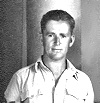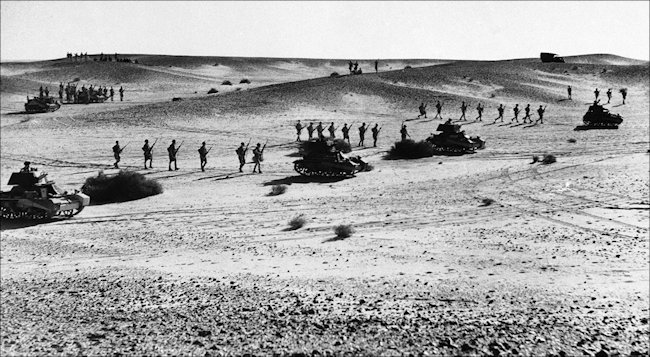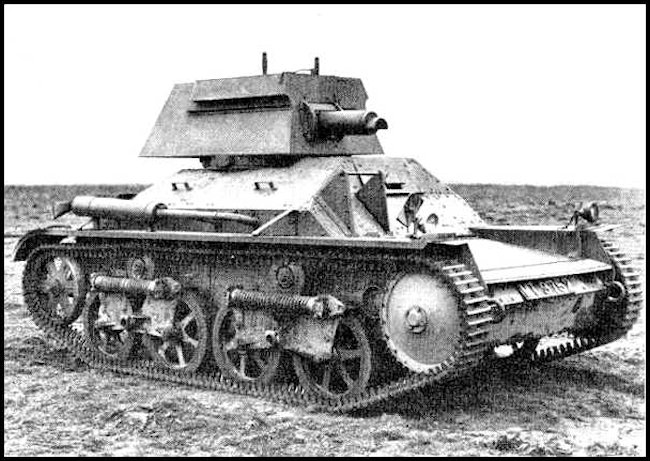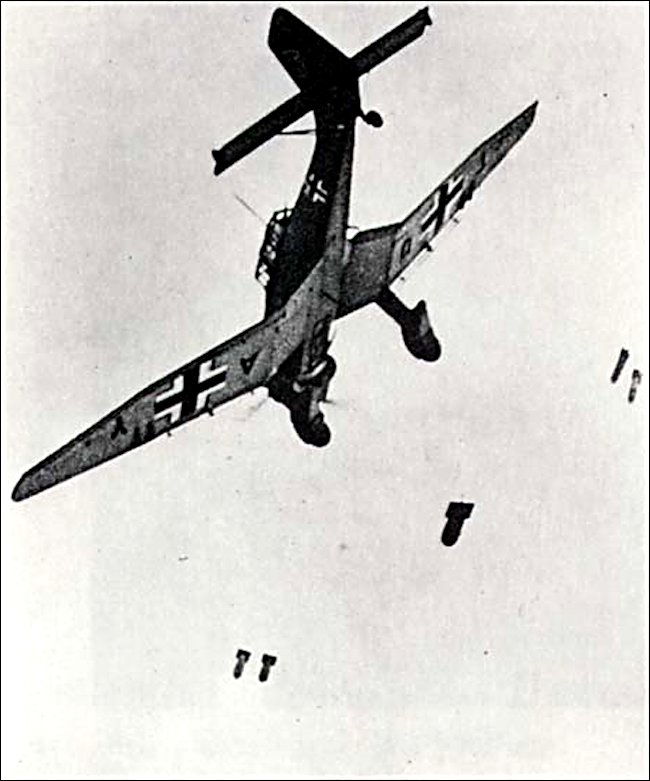KRRC Battle of Sidi Rezegh 22nd - 24th November 1941
Len Moore fought with the 2nd Battalion Kings Royal Rifle Corps 2/KRRC across the deserts of North Africa during WW2 from 1941 to 1943. The battle of Sidi Rezegh was part of Operation Crusader and took place 22nd - 24th November 1941. Len was part of the British battle group. Here are some officers accounts.

Len Moore 2nd Battalion Kings Royal Rifle Corps
"At one time during the morning one 8-wheeled armoured car, and at another five tanks, were reported by C Company 2/KRRC as having approached the edge of the escarpment for the purpose of making a reconnaissance. Upon being fired upon by our 2-pdrs., however, they retreated northwards."

British Vickers Mark IIB and Mark VI tanks supported by Motorised Infantry with Bren-Gun Carrier and Bedford 15cwt truck
Towards 13.30 hrs., just after further rations had been brought up and before these could be dealt out to the Companies, the enemy artillery fire increased in intensity to the force of a barrage, and enemy tanks which had all the morning been immobile on the slope to the north suddenly moved westwards at speed. They swung south round the north-west edge of the escarpment and then east, where it rose in a gentle slope. They came up this slope in mass formation. Motor cycle machine gunners moved with them. The Battalion was taken completely in rear. Without tanks and more anti-tank guns (only two 2-pdrs. were in direct support) the Companies were helpless. The Boys rifle proved entirely ineffective. German Infantry in lorries followed some way behind the tanks, protected"
From another Officer :"If you want to know how our tanks fared, here is my own feeling in the matter. (1) The sooner we dispense with the 2-pdr. gun for one of longer range the better. (2) The Panzers were exceedingly efficient. We need more training in control. (3) We want anti-tank guns with our infantry we cannot do a thing against heavy tanks with the Boys rifle. The Regiment was later armed with 6-pdrs Guns"
From another Officer :"The barrage raised so much dust it formed a most effective screen, and the carriers went through the tail end of it When we were nearly on top of the enemy packets of them got up and started to run. At the same time intense machine-gun and anti-tank fire was opened by the enemy who were in built-up positions, in some cases containing three machine guns and a quick-firing anti-tank gun. The platoon veered to the right, firing Brens into the positions, while some carriers got up behind them and lobbed in hand grenades. All this was carried out at fair speed and all carriers made their way to a wadi on the right of A Company's area: three were hit and put out of action on the way there."
"On reaching the wadi the platoon at once got out of its carriers and made all-round defence with all weapons on the ground We had taken 30 prisoners. All the remaining enemy positions were soon cleared by light machine-gun and mortar fire, except two which were well armoured and fortified. No amount of fire from the platoon was able to displace them, and they brought effective fire on to anyone who showed himself. "

British Vickers Mark II tank was used in the desert in 1941. It was outclassed by the German tanks.
Sergeant Searle 2nd KRRC
Sergeant Searle, A Company :"When our carriers got to within 100 yards of the ridge we could see enemy running about down the ridge. We got down and got all our guns on to targets. Mr. Guest and Rifleman Ash were hit. We lay there about an hour firing."
"By 10.00 hrs. all Corpl. Smith's section had become casualties through mortar fire. Corpl. Dodd's section had only Rfn. Thornhill firing his gun. Rfn. Salter in Corpl. Lipscombe's section was killed. Corpl. Goode was firing the Bren in Corpl. Smith's section."
"The enemy mortar stopped firing and it then became a duel of small arms fire. There was a carrier on our right which had been hit by a 2-pdr., Rfn. Miller and Corpl. Cull being killed. Ammunition was getting very low and Mr. Hope, acting Adjutant, came round the sections in a carrier and lobbed out magazines. His carrier was under fire the whole time."
"At about 11.15 an armoured car O.P. came up and got his guns on to the rear of the enemy positions. These enemy packed in and started coming out with their hands up. We started getting up to take them prisoners, but some enemy on the right continued firing for some time. What remained of the platoon went round the enemy positions mopping up. I was knocked over by a shot through my haversack at the beginning and was hit by a mortar about 10.00. The enemy's position was full of dead. "
Sergeant Smith 2nd KRRC
Sergeant G. T. Smith, A Company :"About 200 yards from the top of the ridge my Platoon-Sergeant ordered me to get my section down owing to the intensity of the fire. At this point my No. 2 reported that Rfn. Green had been killed and I saw him lying across the gun. No. 2 then got the gun into action and opened up on the enemy. We could hear them giving orders in German and Italian."
"The enemy sent over four mortar shells ; the first one wounded Rfn. Bewick, Corpl. Goode and myself. Capt. Hope, who was a few yards behind, asked me if I had any casualties. I replied in the affirmative, and he told me not to worry as he had seen the O.P. who were going to turn the guns on to the ridge An hour later the Gunners put about thirty shells on to it. About 12 I heard someone shout "Cease Fire," and saw the enemy surrendering."
"Resistance to the front had ceased, and these two platoons then moved forward to get out of the enemy line of fire from The fire became gradually less as A Company engaged the enemy from all sides. Finally, after being engaged by our guns, the enemy surrendered. The Company took up a defensive position and prepared for counter-attack. Next day, after shelling all the morning, about 2 p.m. 76 tanks, moving from the west, overran our position, our anti-tank rifle fire proving ineffective. The majority of 15 and 16 Platoons were able to escape by climbing on to a carrier, a truck (R.E.), the Gunner O.P. truck and a 2-pdr. porter No. 14 Platoon worked eastwards along the bottom of the escarpment and got into a wadi. But the enemy advanced from the north in great strength with lorried infantry and armoured cars, de-trucked under the escarpment, overran the ridge and took No. 14 prisoners."
"A Company's Bren-Gun carriers were more fortunate, though they too came under intense machine-gun and quick firing anti-tank gun fire. Approaching the edge of the escarpment they found that the ground at first dipped away gradually before falling into a sheer drop to the valley below, this forming a short reverse slope 100 yards or so broad. It was on this reverse slope that the enemy had sited his main positions, making full use of various natural features such as birs (old well sites) and heads of small wadis"
"A Company's carrier platoon commander (Lt R. A. P. Temple) realized that it was impossible to attack and wipe out all these enemy positions by means of a frontal attack; having therefore knocked out several by means of Bren and Boys (anti-tank rifle) fire and hand grenades, he veered the platoon to the right and made for the one wadi which appeared likely to afford cover. This wadi in reality marked the east flank of the enemy's positions. On the way to it three carriers were hit and put out of action. Once in the wadi all the crews dismounted from their carriers and continued to engage the enemy from the flank with Bren, rife and 2-inch mortar fire, the latter being particularly effective. In a very short time the platoon had captured thirty prisoners, mostly Italian and had put an end to all opposition in the neigbourhood. It proved impossible, however, to dislodge the enemy from several strong positions sited about 500 yards to the west in front of A Company's line of advance."
Stukas and Tea
"German dive bombers regularly attacked our positions. It is really extraordinary how these stukas can get away with it with so much stuff in the air. Our own anti-aircraft guns are at it all day and I hope they do more damage."

German Luftwaffe Junkers Ju 87 Sturzkampfflugzeug stuka dive bomber
"Our rations have improved no end lately and we have even had bread instead of biscuits delicious bread. I had forgotten how good it was. Tinned fruit, cheese, tinned vegetables including potatoes (from the U.S.A.), jam, and Jaffa oranges from Palestine."
"This bit of desert is really fascinating hard, rocky, clean, almost mountainous in places, with miles of incredibly good going almost trees in places in the deep green wadhis and mud flats too."
"War or no war, I find life damn good. You may well wonder how one can enjoy a desert life but the hard work and discomfort make the peaceful and comfortable moments so much nicer. Just now we can only get three very dirty mugs of tea a day. The water is so dirty you would not think of washing your feet in it. It is salty and has a head on it too, and you can only drink the dregs with sand which makes your teeth so dry. How you would laugh to see us, and we love it. I swear I never enjoyed tea more. "